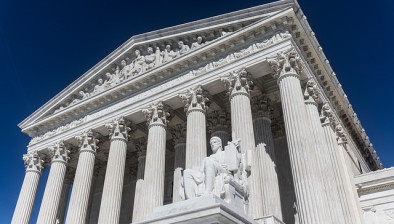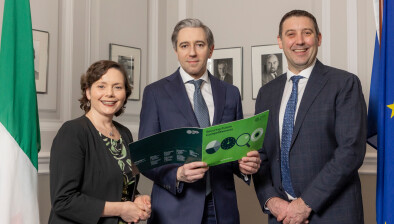Court of Appeal: Notorious Dublin criminal ‘the Viper’ loses appeal against €738,449 interest owed on tax bill
Martin Foley, known as “the Viper”, has lost an appeal against the finding that he was liable for €738,449 interest on a tax bill of €178,510 which has been due since the early 2000s.

About this case:
- Citation:[2019] IECA 287
- Judgment:
- Court:Court of Appeal
- Judge:Mr Justice John A. Edwards
Mr Foley argued that the Criminal Assets Bureau was guilty of inordinate and inexcusable delay in prosecuting the proceedings, but Mr Justice John Edwards said that Mr Foley had the power at every stage to stop the interest accruing by simply paying the tax bill.
Background
Mr Foley was believed to have enjoyed substantial financial gain from his involvement in criminal activity, and was assessed in respect of income tax. For the period of 1993 to 2000, it was assessed that his income tax liability was IR£172,586.80.
To appeal against the assessment, Mr Foley was required under s.957 of the Taxes Consolidation Act 1997 to make returns of any income he enjoyed and pay the amount of tax due on the face of those returns. Full discharge of any admitted liability due is a statutory precondition to the validity of an appeal.
Mr Foley submitted tax returns in order to avail of the appeal process, showing an aggregate income of IR£56,841.00 for 1993 to 2000, with a IR£15,050.97 income tax liability. Instead of discharging his admitted liability, Mr Foley made a part payment of IR£3,000. As such, the Revenue Officer refused Mr Foley’s appeal.
In an appeal to the Revenue Appeals Commissioner, Mr Foley submitted revised returns suggesting he had an aggregate income of IR£105,519 for 1993 to 2000, giving rise to a revised income tax liability of IR£39,814.32. Mr Foley made further part-payments towards his income tax liability, totalling IR£22,966. Again, this fell short of the required full discharge, and his appeal to the Revenue Appeals Commissioner was refused.
Mr Foley did not seek further appeals to the Circuit Court or to the High Court. In those circumstances, the initial assessment of IR£172,586.80 (€218,140.07) became final and conclusive. Mr Foley made a total of five part-payments, leaving a balance of €178,510.85 due for collection.
High Court
In 2013, the Criminal Assets Bureau (CAB) brought proceedings against Mr Foley by Summary Summons claiming a total of €881,257.87 (The balance of €178,510.85 owed plus €633,956.09 for interest due on the unpaid tax up to the 31st of January 2013 pursuant to the Taxes Consolidation Act 1997).
CAB subsequently issued a Notice of Motion claiming liberty to enter final judgment for both amounts, and a further sum for continuing interest. In the High Court in December 2013, Mr Justice George Birmingham granted CAB liberty to enter final judgment for the principal amount of €178,510.85.
The controversy in the case arose with regard to the amount claimed for interest – by January 2014, as a result of further interest added, this was increased to €738,449.27. Mr Foley resisted the claim for this amount on the basis that CAB had been guilty of an inordinate and inexcusable delay for which no justification had been offered, and he claimed that he was “unduly prejudiced” on account thereof.
In the High Court in January 2014, Mr Justice Birmingham said there was “no indication of actual prejudice”. He said “…on the basis of the established jurisprudence, whatever delay that there has been, that is necessary to look at the situation in the round and this is a situation where substantial debts are due. No indication has been put forward of any actual defence and it seems to me that, in the circumstances, that [CAB] is entitled to liberty to enter judgment in respect of the balance of the claim.”
Court of Appeal
Mr Foley argued that Mr Justice Birmingham:
- Erred on the facts and in law in determining that CAB was entitled to enter final judgment against him;
- Erred on the facts and in law in granting CAB liberty to enter final judgment against him;
- Erred on the facts and in law in determining that he had no defence to the proceedings;
- Failed to attribute sufficient weight to CAB’s delay in prosecuting the proceedings.
While acknowledging that there is no statutory limitation period within which these proceedings might have been commenced, Mr Foley argued that the Court had “an overarching supervisory function to ensure, inter alia, that cases are prosecuted with reasonable expedition” – that a point has been reached in these proceedings that there should be consequences for the eleven year delay.
Stating that it was “a matter of public policy that people should pay their taxes in a timely manner” and that this was a statutory obligation, Mr Justice Edwards said there was “no statute of limitations that would have limited the period within which [CAB], or the Collector General, could have commenced action against [Mr Foley] to recover both the taxes assessed against him, and any interest accruing because of late payment of those taxes”.
Mr Justice Edwards said that Mr Foley had no basis for believing that he would not be pursued for his debt, and that “he well knew that interest was accruing” on his unpaid bill for taxes due. He said that it was totally within Mr Foley’s power “at every stage to stop the interest clock from running and to cap the interest bill. All he had to do was to pay the outstanding taxes that he admits were due”.
Noting that CAB did not put forward an explanation for the pre-commencement delay, Mr Justice Edwards said “the mere existence of a substantial and unexplained delay does not make that delay presumptively inordinate and inexcusable”.
Accepting that the eleven-year pre-commencement delay was “arguably inordinate”, Mr Justice Edwards then considered whether it was “arguably excusable”. Considering Primor Plc v Stokes Kennedy Crowley [1996] 2 IR 459, in which the Court clearly stipulated that the onus of establishing that delay has been both inordinate and inexcusable lay with the party seeking to dismiss and oppose a continuance of the proceedings, Mr Justice Edwards said he was “not satisfied that [Mr Foley] discharged that onus, particularly in circumstances where there manifestly has been …a relevant Criminal Assets Bureau investigation”.
Holding that it was not credible to argue that the delay was inexcusable, or that the balance of justice required preventing CAB from maintaining its claim for interest incurred pursuant to statute, Mr Justice Edwards said Mr Foley had no case and dismissed the appeal.











